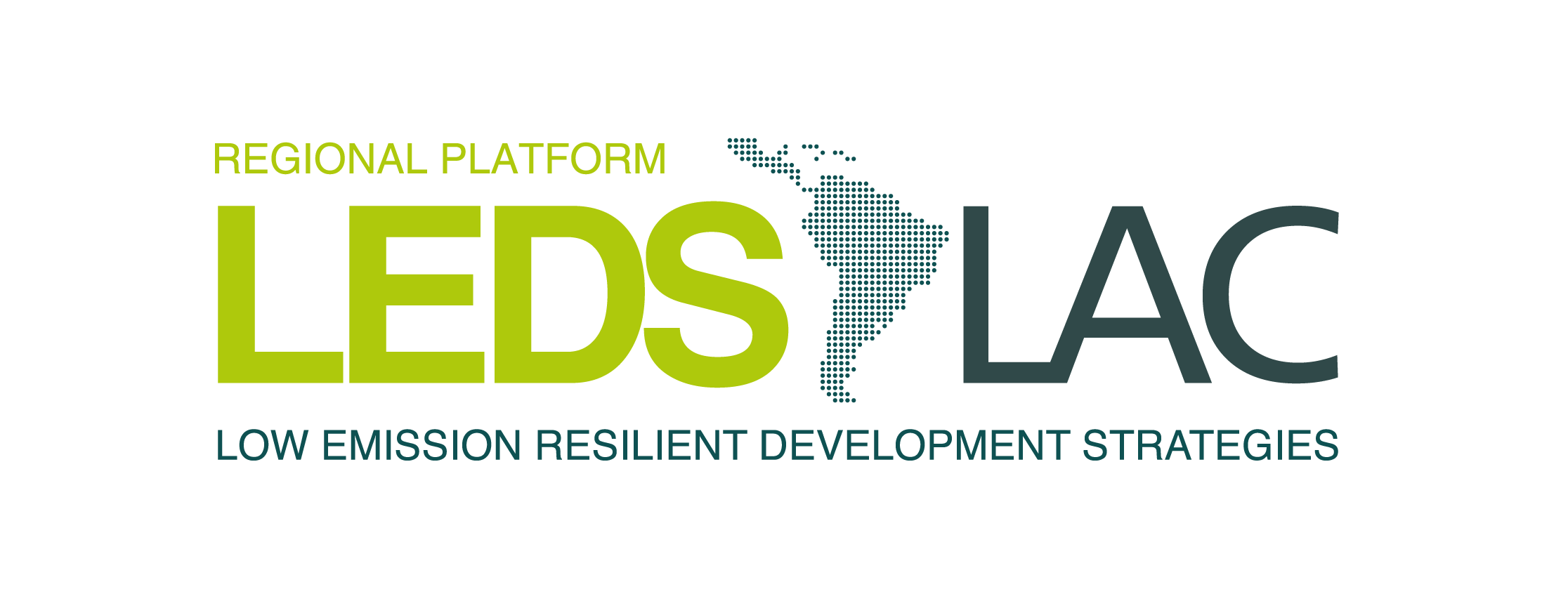Day: Wednesday, October 17, 2018.
Time: 09:00 - 10:30 am (Costa Rican time)
Check the time according to your location: http://bit.ly/2CwVwg5[/fusion_li_item][/fusion_checklist][fusion_separator style_type="none" top_margin="" bottom_margin="" sep_color="" border_size="" icon="" icon_circle="" icon_circle_color="" width="" alignment="" class="" id=""/][fusion_text]
Agenda
Introduction. Aída Figari. Technical expert of the LEDS LAC Secretariat, Libélula Perú.
The Climate and Clean Air in Latin American Cities Program (CALAC+). Jon Bickel. Director, Swisscontact . Download presentation
Experience in the implementation of DPF filters in the Transantiago transportation system. Nancy Manriquez. In charge of Mobile Sources, Ministry of Environment of Chile. | Download presentation
Implementation of Euro VI buses on the La Reforma route in Mexico City. César Gálvez Hernández. Deputy Director of Sustainable Transportation Promotion, SEDEMA. | Download presentation
About the webinar
Health problems caused by air pollution cost billions of dollars a year in medical expenses and lost productivity. The Pan American Health Organization (PAHO) estimates that more than 100 million people in Latin American cities are exposed to air pollution levels that exceed recommended standards. In many cases, air pollution and traditional greenhouse gases have the same sources, which means that mitigation technologies or policies that address one can be effective in eliminating the other.
The Climate and Clean Air in Latin American Cities Program (CALAC+) is a Swiss Cooperation (SDC) initiative implemented by Swisscontact that seeks to promote the effectiveness and speed of reducing air pollutants harmful to human health and mitigating climate change through the application of diesel particulate filters (DPFs). The program works in four cities (Bogotá, Mexico City, Lima and Santiago de Chile) supporting the implementation of measures to reduce emissions of soot, air pollutants and greenhouse gases in urban transportation and construction machinery. During the previous phase, different initiatives for less carbon-intensive urban transport were supported.
This webinar will present two experiences for the reduction of soot emissions in Latin America, the first is the implementation of particulate filters in urban transport in the city of Santiago de Chile and the second is the introduction of Euro VI buses in Mexico City. The webinar will be held in Spanish. If you have any questions about this event, please contact the LEDS LAC Platform Secretariat: [email protected].
About the panelists
[/fusion_text][/fusion_builder_column][fusion_builder_column type="1_1″ background_position="left top" background_color="" border_size="" border_color="" border_style="solid" spacing="yes" background_image="" background_repeat="no-repeat" padding="" margin_top="0px" margin_bottom="0px" class="" id="" animation_type="" animation_speed="0.3″ animation_direction="left" hide_on_mobile="no" center_content="no" min_height="none"][fusion_content_boxes settings_lvl="parent" layout="icon-on-side" columns="1″ icon_align="left" title_size="" title_color="" body_color="" backgroundcolor="" icon_circle="" icon_circle_radius="" iconcolor="" circlecolor="" circlebordercolor="" circlebordercolor="" circlebordersize="" outercirclebordercolor="" outercirclebordersize="" icon_size="" icon_hover_type="" hover_accent_color="" link_type="" link_area="" link_target="" animation_delay="" animation_offset="" animation_type="0″ animation_direction="left" animation_speed="0.1″ margin_top="" margin_bottom="" class="" id=""][fusion_content_box title="Jon Bickel" icon="" backgroundcolor="" iconcolor="" circlecolor="" circlebordercolor="" circlebordersize="" outercirclebordercolor="" outercirclebordersize="" iconrotate="" iconrotate="" iconspin="no" image="https://ledslac.org/wp-content/uploads/2018/10/Jon-Bickel.png" image_width="130″ image_height="130″ link="" linktext="" link_target="_self" animation_type="" animation_direction="" animation_speed=""]Training in agricultural machinery with specialization in senior management. He serves as director of Swisscontact in Peru and director of the Climate and Clean Air Program in Latin American Cities CALAC+. Work experience of more than 35 years in projects and programs related to air quality management, fuel quality, transportation and energy efficiency in production processes in Europe, Africa, Asia and Latin America..[/fusion_content_box][fusion_content_box title="Nancy Manriquez" icon="" backgroundcolor="" iconcolor="" circlecolor="" circlebordercolor="" circlebordersize="" outercirclebordercolor="" outercirclebordercolor="" outercirclebordersize="" iconrotate="" iconspin="no" image="https://ledslac.org/wp-content/uploads/2018/10/foto-Nancy-Manríquez.jpg" image_width="130″ image_height="130″ link="" linktext="" link_target="" link_target="_self" animation_type="" animation_direction="" animation_speed=""]Chemical Engineer with more than 15 years of experience in the regulation of Mobile Sources of the Ministry of Environment, in charge of the fuel quality improvement process in Chile and the establishment of emission standards for new light, medium and heavy vehicles in Chile. She was in charge of the regulation process of the standards for vehicles in use in technical revision plants, motorcycle standards and the Euro 6 standard for public transport buses in the Metropolitan Region (Transantiago). He is currently in charge of the regulatory process of the off-road machinery standard in Chile.[/fusion_content_box][fusion_content_box title="César Gálvez" icon="" backgroundcolor="" iconcolor="" circlecolor="" circlebordercolor="" circlebordersize="" outercirclebordercolor="" outercirclebordersize="" iconrotate="" iconspin="no" image="https://ledslac.org/wp-content/uploads/2018/10/Cesar.png" image_width="130″ image_height="130″ link="" linktext="" link_target="_self" animation_type="" animation_direction="" animation_speed=""]Chemical engineer with 35 years of experience in air pollution studies. He is Deputy Director of Promotion of Sustainable Transportation at the Secretariat of the Environment (SEDEMA) of the Federal District Government. In SEDEMA he has also served as advisor and general coordinator of projects, director of emissions inventory and environmental analysis and in the attention to environmental contingencies of the automatic network of atmospheric monitoring. He is also a professor of environmental engineering at the Instituto Politécnico Nacional since 1988.[/fusion_content_box][/fusion_content_boxes][fusion_separator style_type="none" top_margin="" bottom_margin="" sep_color="" border_size="" icon="" icon_circle="" icon_circle_color="" width="" width=""" alignment="" class="" id=""/][fusion_text]
Additional material
[/fusion_text][/fusion_builder_column][fusion_builder_column type="1_1″ background_position="left top" background_color="" border_size="" border_color="" border_style="solid" spacing="yes" background_image="" background_repeat="no-repeat" padding="" margin_top="0px" margin_bottom="0px" class="" id="" animation_type="" animation_speed="0.3″ animation_direction="left" hide_on_mobile="no" center_content="no" min_height="none"][fusion_content_boxes settings_lvl="parent" layout="icon-on-side" columns="1″ icon_align="left" title_size="" title_color="" body_color="" backgroundcolor="" icon_circle="" icon_circle_radius="" iconcolor="" circlecolor="" circlebordercolor="" circlebordercolor="" circlebordersize="" outercirclebordercolor="" outercirclebordersize="" icon_size="" icon_hover_type="" hover_accent_color="" link_type="" link_area="" link_target="" animation_delay="" animation_offset="" animation_type="0″ animation_direction="left" animation_speed="0.1″ margin_top="" margin_bottom="" class="" id=""][fusion_content_box title="The Santiago de Chile Diesel Particle Filter Program for Buses of Public Urban Transport" icon="" backgroundcolor="" iconcolor="" circlecolor="" circlebordercolor="" circlebordersize="" outercirclebordercolor="" outercirclebordercolor="" outercirclebordersize="" iconrotate="" iconrotate="" iconrotate="" iconspin="no" image="https://ledslac.org/wp-content/uploads/2018/10/Captura-de-pantalla-2018-10-17-a-las-10.13.49-1.png» image_width=»70″ image_height=»70″ link=»https://ledslac.org/wp-content/uploads/2018/10/The-Santiago-de-Chile-Diesel-Particle-Filter-Program-for-Buses-of-Public-Urban-Transport.pdf" linktext="" link_target="_self" animation_type="" animation_direction="" animation_speed=""][/fusion_content_box][/fusion_content_boxes][fusion_separator style_type="none" top_margin="" bottom_margin="" sep_color="" border_size="" icon="" icon_circle="" icon_circle_color="" width="" alignment="" class="" id="" id="""/][fusion_text][fusion_content_boxes][/fusion_content_boxes][fusion_text]]
This webinar is co-hosted with:
[/fusion_text][fusion_imageframe lightbox="no" gallery_id="" lightbox_image="" style_type="none" hover_type="none" bordercolor="" bordersize="0px" borderradius="0″ stylecolor="" align="none" link="" linktarget="_self" animation_type="0″ animation_direction="down" animation_speed="0.1″ animation_offset="" hide_on_mobile="no" class="" id=""]  [/fusion_imageframe][/fusion_builder_column][/fusion_builder_row][/fusion_builder_container].
[/fusion_imageframe][/fusion_builder_column][/fusion_builder_row][/fusion_builder_container].
